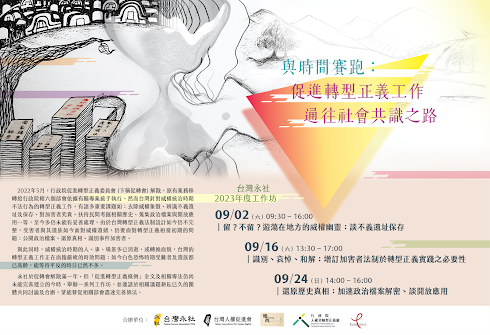Wu Ching-chin 吳景欽
(Wu Ching-chin is an associate professor, chair of Aletheia University’s law department and director of Taiwan Forever Association)
(作者為真理大學法律系副教授兼系主任、永社理事)
Translated by Julian Clegg
TAIPEI TIMES / Editorials 2017.07.26
http://www.taipeitimes.com/News/editorials/archives/2017/07/26/2003675303
On Monday last week, the Taipei District Prosecutors’ Office searched the home and office of former Chinese Nationalist Party (KMT) Central Policy Committee director Alex Tsai (蔡正元) in connection with an investigation involving three companies formerly connected with the KMT: Central Motion Picture Corp (中影), China Television Co (中視) and Broadcasting Corp of China (中廣). The Taipei District Court approved the prosecutors’ application for Tsai to be detained on the grounds that there was strong evidence of his involvement in criminal activity.
However, the same case had previously been investigated by the now-defunct Special Investigation Division (SID) of the Supreme Prosecutors’ Office, which closed its investigation without seeking an indictment. That the investigation should now be launched anew raises questions about the independence of prosecutorial authorities.
The case involves the possibility that KMT assets were improperly disposed of and transferred. It was in 2006 that somebody reported the matter to the black gold investigation action center — an anti-corruption unit subordinate to the Taiwan High Prosecutors’ Office. The following year, the case was handed over to the center’s successor organization — the then-newly established SID. The SID’s mission was to investigate senior government officials and wealthy businesspeople.
The Prosecutor General, who is head of the Supreme Prosecutors’ Office, holds that position for a fixed term of four years and cannot serve a second term. It was thought that this setup would maintain a space for the independent exercise of prosecutorial power, as well as concentrate resources to take swifter and more effective legal action in major cases of corruption and economic crimes.
Because the case of the three companies involved transfers of KMT assets through diverse and complicated transactions, it would be a test of the SID’s expertise and efficiency. However, having started its investigation into the case, the SID went on investigating it for seven or eight years. Not until 2014 did it wind up its investigation, saying that it had not discovered anything illegal. Although it offered a detailed explanation of this decision in the form of a case table, it gave rise to more questions regarding matters such as embezzlement and breach of trust in connection with the already convoluted handling of the assets. Even without considering whether the SID’s explanation was reasonable, by letting the case drag on for so long before finally closing it down, the SID did not demonstrate any expertise or efficiency. On the contrary, the SID’s handling of the case left it open to accusations it was protecting those in high office and it was the main reason the SID was consigned to the history books.
Because closure of a case is not defined in the Code of Criminal Procedure (刑事訴訟法), it does not have the force of a decision not to indict, which is so defined and engenders the restriction that prosecutors cannot make a new indictment unless new evidence is discovered. That is why the Taipei District Prosecutors’ Office has been able to investigate the case and make indictments following the abolition of the SID on Jan. 1.
However, last week’s large-scale searches apparently result from accusations made by the Ill-gotten Party Assets Settlement Committee in April, and this makes one wonder whether prosecutors, be it the former SID or the Taipei District Prosecutors’ Office, take action based on evidence or on which way the political wind is blowing.
The way this case has been handled, from the closure of the investigation three years ago to the renewed investigation, not only raises questions about prosecutors’ independence, but also exposes the existing situation under which prosecutorial authorities are not subject to external oversight.
Preparatory work is underway for the National Congress on Judicial Reform, of which people have high expectations for judicial democratization.
In view of situations such as this, one might question whether the remit of the congress should be extended to include constraints on prosecutorial authority. This could be achieved by following the US system, under which, when prosecutors wish to bring charges for major offenses, a grand jury composed of members of the public must decide whether they qualify for indictment.
Alternatively, Taiwan could follow the Japanese system, under which a prosecutorial review commission (kensatsu shinsakai) composed of members of the public deliberates as to whether prosecutors have acted inappropriately in cases where they decide not to bring charges. Both these systems function as preventive measures against abuse of prosecutorial power.


